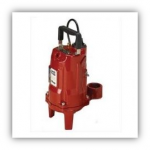Protect Your Sump Pump System: What to Consider for Better Winter Performance
Sump pumps are popularly used in residential homes to keep water away from basements to prevent flooding. They are cylindrical units that activate when the water level rises to a specific limit and moves it away from the property.
They work hard to move water during heavy rains in spring and summer. However, they may face particular challenges during winter. Sump pumps can face winter problems, such as freezing or overflowing, that may result in blockages and reduced efficiency. Hence, you need to take precautionary measures to ensure better performance.
Understanding Your Sump Pump
Sump pumps are generally installed in the crawlspace or basement of a house. They help to keep the area dry and prevent flooding. They are installed in specially constructed sump pits where the water flows in to be moved away from the site.
A comprehensive system consists of four main parts: the sump pit, check valve, backup pump, and sump pump. It is activated via a switch to alert the system about the rising water levels. Accordingly, it pumps the excess water away from the home’s foundation into a drainage system or a distant location.
Common Winter Challenges
The winter season can cause a few challenges for the sump pump system. The water can freeze when the temperature drops below a certain point, causing the pump to malfunction. As a result, it can lead to flooding and cause water damage in the basement.
Moreover, winter can also affect the pump’s efficiency because ice formations make the water thicker. The sump pump’s intake grate can also get blocked due to snow and ice accumulation. Hence, it can prevent the water from entering the pump.
Also, freezing conditions can further expand the trapped water, causing cracks and pump damage. You can identify a frozen sump pump by the following factors:
- No sign of water pumped at the end of the discharge pipe or wherever it moves water away from your property
- Flooding in the basement due to rising water levels
- Strange noises originating from the pump that is trying to move water but cannot due to ice blockage
Therefore, ensuring winter maintenance is essential for your sump pump’s efficiency and longevity. It can prevent flooding and help protect your machine from overexerting itself. Constantly running the motor without pumping water can burn it out, leading to high risks of damage.
Tips for Protecting Your Sump Pump System
You can perform regular maintenance before winter sets in by following the steps mentioned below:
- Inspect the sump pump and pit for visible snow or debris blockage signs.
- Test the pump by pouring water to see if it works as intended.
- Check the discharge pipe to ensure it is ice-free and water can flow freely.
Additionally, you can follow the steps below during winter to protect your system.
Discharge Hose
The discharge hose can get damaged due to frozen water. Therefore, you should disconnect it in the winter season and reconnect it in spring. You can also invest in a backup hose if the original gets damaged due to the freezing conditions. Additionally, consider burying them at least 12 cm underground to prevent freezing.
Insulating Pipes and Sump Pump
You can prevent water from freezing in the pipes by adding insulation. You can also add an antifreeze attachment to the sump pump to prevent freezing and clogging. Insulating the sump pit will also prevent the water in the pit from freezing. Moreover, consider purchasing and installing an ice guard for added protection.
Check and Clear Debris
Ensure the sump pump’s pit and pipes are free from mud, debris, or other gunk. You can protect debris from falling in by keeping it in a sealed container. Excess debris can cause clogging, leading to slow-moving water, frozen pipes, and flooding.
Check the Discharge Pipe Exit Location
The discharge pipe is essential in moving the water away from your property. Hence, you must ensure the exit pipe is at least ten feet from your home. It helps prevent water from leading back to the pump and ensures that the pump is working efficiently. Frozen water can cause the pump to run continuously and cause it to burn out.
Check Your Basement
You should also ensure the basement is sealed adequately from any cold air blowing in during winter. Remember to close any crawl space vents or windows, if any. It will prevent the cold air from freezing the sump pump’s pit water. Although basements are relatively colder, following this precaution can keep the water from freezing.
Hire a Qualified Technician
Alternatively, you can hire a technician to ensure your sump pump system is ready for winter. They can provide routine checks and maintenance to ensure it can operate without issues. Additionally, they can provide guidance and assist you in winter-proofing your sump pump to prevent freezing.
Conclusion
To summarize, sump pump systems play a crucial role in preventing basement flooding. However, they need special attention in winter due to freezing pipes, snow, and other debris. Hence, you should regularly check it for clogging and consider installing additional features like insulation, ice guards, and anti-freezing materials. It will ensure your sump pump’s efficiency during the winter season.












